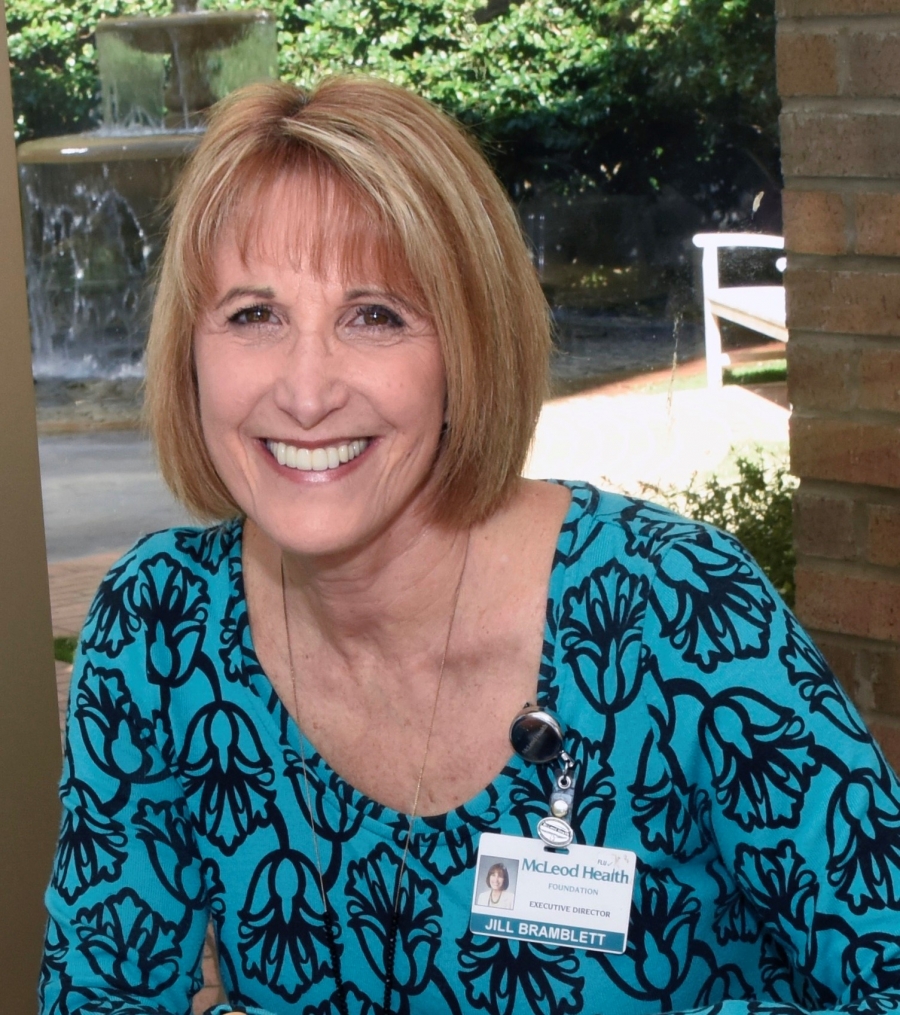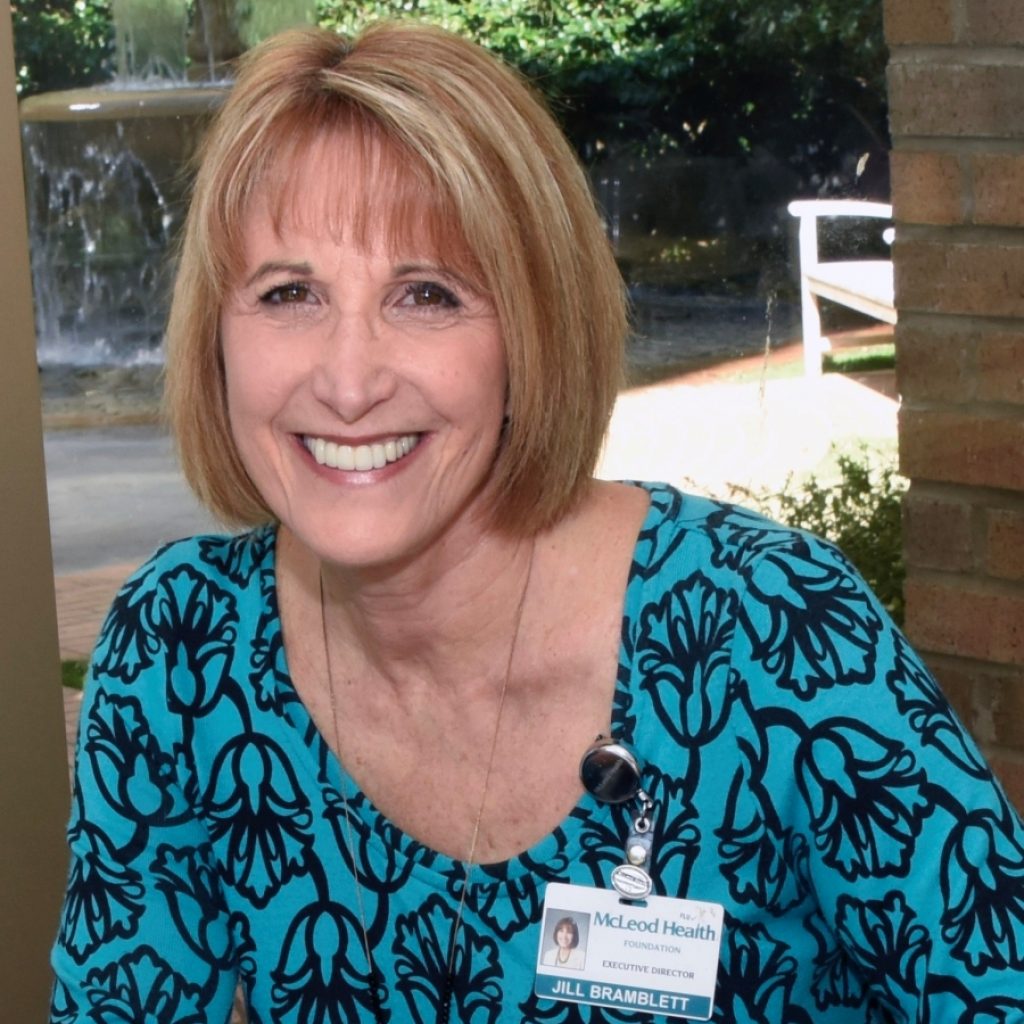
FLORENCE, S.C. — The McLeod Health Foundation has received two grants from The Duke Endowment totaling $1,225,000 to provide home-based primary care to patients in rural communities through nurse-facilitated telehealth as well as expand school-based telehealth programs in five rural counties in South Carolina.
These grants support the mission of McLeod Health, which is to improve the overall health and well-being of people living within South Carolina and eastern North Carolina by providing excellence in health care.
Home-Based Primary Care Through Nurse-Facilitated Telehealth
The McLeod Health Foundation has received $525,000 from The Duke Endowment to provide home-based primary care to patients in rural communities through nurse-facilitated telehealth.
Chesterfield, Marlboro, Clarendon and Williamsburg County residents face significant barriers to accessing primary care. Seventy-five percent of people in the four-county area live in rural environments, while 25 percent live in poverty. Many patients are forced to travel long distances, often without reliable transportation.
In addition, these areas suffer from some of the state’s poorest health outcomes. Rates of avoidable hospitalizations across the four counties are 29 percent higher than statewide rates. Of 8,349 patients across McLeod Family Medicine sites in Cheraw (Chesterfield County) and Manning (Clarendon County), 19 percent have diabetes and 58 percent have hypertension. Patients also face difficulty accessing care, as evidenced by the practices’ missed appointment rates. This in turn leads to downstream health problems.
Regular monitoring of hypertensive and diabetic patients is especially crucial. Yet, across the Cheraw and Manning Family Medicine practices, more than one in 10 diabetic patients do not receive adequate A1c monitoring. Likewise, many hypertensive patients are not having their blood pressure monitored adequately — 37 percent have not received a documented blood pressure check within the last six months.
This program uses telemedicine technology to connect Chesterfield, Marlboro, Clarendon and Williamsburg County patients, from their homes, with physicians at the McLeod Family Medicine offices in Cheraw and Manning.
Licensed practical nurses will facilitate these remote visits, traveling to patients’ homes equipped with everything needed to provide a complete primary care encounter. Patients will be seen by primary care physicians on staff at the two McLeod Family Medicine offices. Often, these physicians will be residents of the McLeod Family Medicine Rural Track Residency Program.
This model will allow for unprecedented insight into patients’ home environments. This will allow for the ability to uncover social determinants of health in ways traditional office visits and video-only telehealth visits never could.
Reading, Writing and Wellness: McLeod Health School-Based Telehealth Program
The McLeod Health Foundation received $700,000 to expand school-based telehealth programs in five rural counties in South Carolina.
This program addresses lack of care access for school-aged children across Chesterfield, Marlboro, Clarendon, Williamsburg and lower Florence Counties.
Most of South Carolina’s underfunded public-school system runs through the Pee Dee region. Forty-three percent of Marlboro County children live in poverty, more than double the national rate. Thirty-seven percent of children in Clarendon and 31 percent of children in Chesterfield County live in poverty. Whereas half of United States children are eligible for free or reduced lunch, 80 percent of Florence County children and 100 percent of children in the other four counties are eligible. With poverty often comes health barriers such as uninsuredness, lower educational attainment and difficulty accessing care.
The McLeod School-Based Telehealth Program offers a multitude of benefits to students, administrators, parents and the community at large. This program will not only provide consistent care to every child, improving the overall health of the student body, it will also reduce lost classroom time and improved academic performance.
With SBTP, an off-site McLeod primary care provider can quickly assess, diagnose and determine a treatment plan for sick students and send any necessary prescriptions to their pharmacy.
By connecting patients to McLeod providers, the organization can ensure quality standards of care. This allows the organization to immediately address problems before they become emergencies as well as reduce the use of the Emergency Department for low-acuity illness, hospital readmissions, student absenteeism and the spread of contagious diseases.
Parents/guardians can join the visit and talk with the provider without leaving work or having to schedule an appointment with their provider. To improve care coordination, McLeod providers will send a visit summary detail to the child’s pediatrician or family medicine provider.
“We are fortunate to have the support of The Duke Endowment to greatly enhance the care our rural patients receive,” said Jill Bramblett, executive director of the McLeod Health Foundation. “With their help, we are striving to build healthier communities and continuing to develop the outstanding health care that McLeod has been a leader in for more than a century.”



